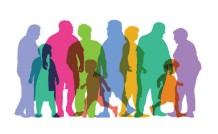Online Class: Attention Deficit Disorders — ADD and ADHD

no certificate
with CEU Certificate*
-
10Lessons
-
16Exams &
Assignments -
2,702Students
have taken this course -
7Hours
average time -
0.7CEUs
Course Description
Attention Deficit Hyperactivity Disorder (ADHD) affects millions of children and adults all over the world. Although it is considered a mental health issue by some medical practitioners, ADHD is actually a complex neurobiological disorder, thus, it cannot be treated by therapy alone. There are many excellent new drugs which are effective and non-addicting which are proven to help those who suffer with this disorder. Additionally, there are homeopathic options available today that were not available in the past. ADHD is not caused by bad parenting, psychological trauma or drug addiction. Although, ADHD is not purely a mental health disorder, psychological counseling (combined with medication) can assist by teaching behavior modification techniques. Having ADHD is not anything to be ashamed of, in fact, many creative, intelligent, successful, productive people have been diagnosed with this disorder. This course will cover many aspects of ADHD and will help clear up myth from fact. This course is appropriate for those who want to learn more about attention deficit disorder and attention deficit hyperactivity disorder.
Course Motivation
The most troublesome ADHD behaviors and characteristics will also be covered in this course. It is important to know that a professional should diagnose ADHD and that the symptoms should be "chronic" and ongoing before seeking treatment. For all purposes regarding ADHD, the chronic behaviors should be continual and sustained over a long period and cannot be easily attributed to environmental factors such as moving, divorce, illness, death in the family, a new baby in the house, or a family crisis. All of these changes and situations, whether or not they are perceived as positive or negative, can and do cause ADHD like symptoms in children that usually pass over time or can be alleviated by family counseling. Keep in mind that big changes such as these can aggravate ADHD symptoms. Turmoil and substantial change, while difficult for all people, is particularly difficult for those with ADHD.Boys and men are three times more likely to be diagnosed with ADHD than girls and women, however, it is unclear why this is since girls and women are equally likely to have the disorder. ADHD is not a sex specific disorder, however, it does display differently in males than females.
ADHD symptoms may lessen in adulthood or disappear altogether. It is believed that many of those with ADHD in childhood learn to self-modify their behaviors and symptoms. Because of this, they are able to manage the negative consequences that often accompany and are a result of the disorder. For instance, the inability to focus and stay still for long periods, as is required for school and college study and work tasks may be compensated for by performing tasks in shorter more intense bursts. As children grow into adults with ADHD, many, if not most, learn how to compensate for the disorder, thus, fewer adults are diagnosed than are children. However, a small percentage of adults with ADHD continue to have symptoms that they are not aware that they are caused by ADHD. Many of them would benefit from medication and behavioral therapy.
Treatment typically involves medications, behavioral interventions, and modifications. These two components combined help those with ADHD control the symptoms and manage the disorder so that they can lead productive, fulfilling lives.
During the last few years, many different terms for children and adults with ADHD have been introduced and used. They were mainly influenced by American descriptions of the classification system used by the Diagnostic and Statistical Manual of Mental Disorders (DSM).ADD and ADHD are synonyms. The acronym ADD stands for "Attention Deficit Disorder" and the acronym ADHD stands for "Attention Deficit Hyperactivity Disorder." Although, ADHD includes the term Hyperactivity, they are still classified as the same. While the disorder may have lesser and greater degrees of hyperactivity, it has been found that hyperactivity to some extent is a clear characteristic of its symptoms. So, one would not be diagnosed with the disorder if there were no symptoms of hyperactivity, even if they are minor and/or periodic.
ADHD (Attention Deficit Hyperactivity Disorder)
ADHD is the term used in the current Diagnostic and Statistical Manual of Mental Disorders (DSM) for the diagnostic criteria for this disorder.
ADD (Attention Deficit Disorder)
With or without hyperactivity ADD, Attention Deficit Disorder, is the older term from the DSM. Thus, in some older literature you will find this term as a synonym for ADHD. However, by all current standards ADD is no longer used to describe the disorder, even though some literature and Web sites will refer to ADD as a disorder which has all symptoms except hyperactivity. This course will only use the acronym "ADHD" to describe Attention Deficit Disorder with or without high hyperactivity.
Conclusion
ADHD affects girls, boys, men, and women equally, athough boys and men are three times more likely to be diagnosed with the disorder. It is characterized by a set of symptoms that persist over a long period and, which are constant, consistent, and persistent. Symptoms include the inability to focus, lack of attention, hyperactivity, physical and mental control problems, and relationship problems. The acronym ADD is no longer used by the Diagnostic and Statistical Manual of Mental Disorders and it has been replaced by ADHD.
- Completely Online
- Self-Paced
- Printable Lessons
- Full HD Video

- 6 Months to Complete
- 24/7 Availability
- Start Anytime
- PC & Mac Compatible
- Android & iOS Friendly
- Accredited CEUs

Course Lessons
Lesson 1. Definition of ADHD, Attention deficit hyperactivity disorder
 Lesson 1 Video
Lesson 1 Video Lesson discussions: ADHD Course; Reasons for Taking this Course
Lesson discussions: ADHD Course; Reasons for Taking this Course Complete: Lesson 1 Assignment
Complete: Lesson 1 Assignment Complete Assignment: An Introduction
Complete Assignment: An Introduction Assessment: Lesson 1 : Definition ADHD
Assessment: Lesson 1 : Definition ADHD
Lesson 2. Characteristics of Students with ADHD
 Lesson 2 Video
Lesson 2 Video Complete: Lesson 2 Assignment
Complete: Lesson 2 Assignment Assessment: Lesson 2 : Characteristics of Students with ADHD
Assessment: Lesson 2 : Characteristics of Students with ADHD
Lesson 3. Prevalence and Sub-Types of ADHD
 Lesson 3 Video
Lesson 3 Video Assessment: Lesson 3 : Prevalence and Sub-Types of ADHD
Assessment: Lesson 3 : Prevalence and Sub-Types of ADHD
Lesson 4. What Causes and What Does not Cause ADHD
 Lesson 4 Video
Lesson 4 Video Lesson discussions: Causes of ADHD
Lesson discussions: Causes of ADHD Assessment: Lesson 4 : What Causes and What Does not Cause ADHD
Assessment: Lesson 4 : What Causes and What Does not Cause ADHD
Lesson 5. Assessment and Diagnosis of Students with ADHD
 Lesson 5 Video
Lesson 5 Video Complete: Lesson 5 Assignment
Complete: Lesson 5 Assignment Assessment: Lesson 5 : Assessment and Diagnosis of Students with ADHD
Assessment: Lesson 5 : Assessment and Diagnosis of Students with ADHD
Lesson 6. Medication Interventions and Treatment for Students with ADHD
 Lesson 6 Video
Lesson 6 Video Assessment: Lesson 6 : Medication Interventions and Treatment for Students with ADHD
Assessment: Lesson 6 : Medication Interventions and Treatment for Students with ADHD
Lesson 7. Behavioral Interventions and Treatments for Students with ADHD
 Lesson 7 Video
Lesson 7 Video Lesson discussions: Treatments
Lesson discussions: Treatments Complete: Lesson 7 Assignment
Complete: Lesson 7 Assignment Assessment: Lesson 7 : Behavioral Interventions and Treatments for Students with ADHD
Assessment: Lesson 7 : Behavioral Interventions and Treatments for Students with ADHD
Lesson 8. Educational Placement Options for Students with ADHD
 Lesson 8 Video
Lesson 8 Video Assessment: Lesson 8 : Educational Placement Options for Students with ADHD
Assessment: Lesson 8 : Educational Placement Options for Students with ADHD
Lesson 9. Family, School, and Societal Issues of Students with ADHD
 Lesson 9 Video
Lesson 9 Video Complete: Lesson 9 Assignment
Complete: Lesson 9 Assignment Assessment: Lesson 9 : Family, School and Societal Issues of Students with ADHD
Assessment: Lesson 9 : Family, School and Societal Issues of Students with ADHD
Lesson 10. Course Conclusion
 Lesson 10 Video
Lesson 10 Video Lesson discussions: What is your opinion of this course?; Program Evaluation Follow-up Survey (End of Course); Course Comments
Lesson discussions: What is your opinion of this course?; Program Evaluation Follow-up Survey (End of Course); Course Comments Assessment: A Final Exam
Assessment: A Final Exam
Learning Outcomes
- Identify the characteristics of students with AD/HD.
- Identify the prevalence and types of AD/HD.
- Describe the causes of AD/HD.
- Describe assessment and diagnosis processes for students with AD/HD.
- Identify educational placements options for students with AD/HD.
- Describe behavioral interventions for students with AD/HD.
- Describe medication interventions for students with AD/HD.
- Identify family issues of students with AD/HD.
- Demonstrate mastery of lesson content at levels of 70% or higher.
Additional Course Information

- Document Your Lifelong Learning Achievements
- Earn an Official Certificate Documenting Course Hours and CEUs
- Verify Your Certificate with a Unique Serial Number Online
- View and Share Your Certificate Online or Download/Print as PDF
- Display Your Certificate on Your Resume and Promote Your Achievements Using Social Media

Choose Your Subscription Plan
No Certificate / No CEUs
This course only
| Includes certificate | X |
| Includes CEUs | X |
| Self-paced |

|
| Instructor support |

|
| Time to complete | 6 months |
| No. of courses | 1 course |
Certificate & CEUs
This course only
| Includes certificate |

|
| Includes CEUs |

|
| Self-paced |

|
| Instructor support |

|
| Time to complete | 6 months |
| No. of courses | 1 course |
Certificates & CEUs
Includes all 600+ courses
| Includes certificate |

|
| Includes CEUs |

|
| Self-paced |

|
| Instructor support |

|
| Time to complete | 12 Months |
| No. of courses | 600+ |
Certificates & CEUs
Includes all 600+ courses
| Includes certificate |

|
| Includes CEUs |

|
| Self-paced |

|
| Instructor support |

|
| Time to complete | 24 Months |
| No. of courses | 600+ |
Student Testimonials
- "I enjoyed the class very much. I work with elementary students, and have a child with ADHD. I was grateful for the lesson that taught how to get your child evaluated and how to stay assertive, and get everything in writing. We got the feeling our school wasn't interested in evaluating or providing services. We had to find out what was available and request everything in writing. Thank you for putting that in the lessons so that others who may encounter this situation will be aware and ready." -- Kristine R.
- "I thought this course was extremely helpful and beneficial to understanding ADHD and what comes with the disorder." -- Sarah L.
- "Overall, the content in each lesson was informative and an excellent place for a parent or teacher of an ADHD child to familiarize themselves with the disorder and give them resources for treatment/management." -- Heather C.
- "I am so pleased to have the opportunity to be able to obtain useful information that I can apply in my life for a positive outcome. I love having these courses at my fingertips and there are so many. I look forward to accessing all of my interests and 'need to knows'. Thank you!" -- April B.
- "This instructor is great! I have taken several courses by her, and she is extremely quick in getting things back and giving feedback :))." -- Jill B.
- "I thoroughly enjoyed this course and learned plenty about ADHD I didn't know!" -- Savannah R.
- "Excellent instructor and timely feedback!" -- Tonia C.
- "The instructor was great." -- Denise T.
Related Courses
-
 3 hours
0.3 CEUs
First Grade Curriculum
$95.00
3 hours
0.3 CEUs
First Grade Curriculum
$95.00
-
 8 hours
0.8 CEUs
Early Childhood Development 101
$95.00
8 hours
0.8 CEUs
Early Childhood Development 101
$95.00
-
 3 hours
0.3 CEUs
Single Parenting 101
$95.00
3 hours
0.3 CEUs
Single Parenting 101
$95.00
-
 5 hours
0.5 CEUs
Basic Parenting 101
$95.00
5 hours
0.5 CEUs
Basic Parenting 101
$95.00
-
 10 hours
1.0 CEUs
Understanding Addictions
$95.00
10 hours
1.0 CEUs
Understanding Addictions
$95.00
-
 11 hours
1.1 CEUs
Special Education 101
$95.00
11 hours
1.1 CEUs
Special Education 101
$95.00
-
 7 hours
0.7 CEUs
Solving Classroom Discipline Problems
$95.00
7 hours
0.7 CEUs
Solving Classroom Discipline Problems
$95.00
-
 7 hours
0.7 CEUs
How to Teach Reading Fundamentals
$95.00
7 hours
0.7 CEUs
How to Teach Reading Fundamentals
$95.00
-
 7 hours
0.7 CEUs
Child Psychology 101
$95.00
7 hours
0.7 CEUs
Child Psychology 101
$95.00
-
 6 hours
0.6 CEUs
Workplace Drug Use - An HR Guide
$95.00
6 hours
0.6 CEUs
Workplace Drug Use - An HR Guide
$95.00
-
 4 hours
0.4 CEUs
How To Be a Substitute Teacher
$95.00
4 hours
0.4 CEUs
How To Be a Substitute Teacher
$95.00
-
 5 hours
0.5 CEUs
Building Self-Esteem in Children
$95.00
5 hours
0.5 CEUs
Building Self-Esteem in Children
$95.00
-
 3 hours
0.3 CEUs
Problem Solving Strategies
$95.00
3 hours
0.3 CEUs
Problem Solving Strategies
$95.00
-
 3 hours
0.3 CEUs
Childhood Obesity
$95.00
3 hours
0.3 CEUs
Childhood Obesity
$95.00
-
 7 hours
0.7 CEUs
Understanding Learning Styles
$95.00
7 hours
0.7 CEUs
Understanding Learning Styles
$95.00
-
 7 hours
0.7 CEUs
Personality Development
$95.00
7 hours
0.7 CEUs
Personality Development
$95.00
-
 4 hours
0.4 CEUs
Second Grade Curriculum
$95.00
4 hours
0.4 CEUs
Second Grade Curriculum
$95.00
-
 5 hours
0.5 CEUs
Positive Parenting Techniques
$95.00
5 hours
0.5 CEUs
Positive Parenting Techniques
$95.00
-
 9 hours
0.9 CEUs
Reading Comprehension 101
$95.00
9 hours
0.9 CEUs
Reading Comprehension 101
$95.00
-
 5 hours
0.5 CEUs
Home Safety
$95.00
5 hours
0.5 CEUs
Home Safety
$95.00
-
 10 hours
1.0 CEUs
Learning Disabilities: What You Need to Know
$95.00
10 hours
1.0 CEUs
Learning Disabilities: What You Need to Know
$95.00









